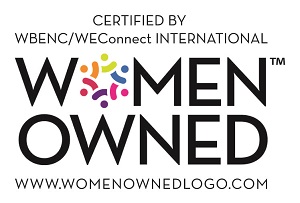Does Your COVID-19 Plan Place Your Organization at Risk?
Published on
COVID-19 has forced many organizations to learn new ways of conducting business and communicating with clients. As we are months into COVID-19, now is the time to evaluate your accessibility compliance plan. Many companies are finding their COVID-19 plan fails to meet the Federal and State laws regarding Americans with disabilities. Is your organization at risk for lawsuits or ADA compliance violations, when it comes to equal access to communication, goods, and services for all Americans?
What Laws Must Companies Follow During a State of Emergency or Global Crisis?
All laws that pertain to the Americans With Disabilities Act (ADA) are enforceable at all times, especially during a crisis. These essential laws took effect in 1990 and are fully applicable in all situations. So, there are no excuses in a time of crisis not to have all methods of communication in an alternative or ADA compliant format, that a person with a visual, cognitive, or neurological disability can readily access.
Are there extenuating circumstances for Non-ADA compliance?
No. Your business must include accessibility as you make adjustments to service and communicate with your clients. There are no excuses or acceptable reasons to be out of ADA compliance.
One of the primary reasons for creating and enforcing the ADA is to ensure all people can access information, goods, and services equally.
Accessibility Overlooked in Times of Crisis.
It is highly unlikely that a business is intentionally non-compliant with accessibility laws. Failure to provide ADA accessibility isn’t because people don’t care; it’s typically because ADA accessibility is not in the framework of many organizations.
Here are some examples of unknowingly denying access to a person with a disability.
Scenario 1
A retailer places all of their inventory online, and clients can now access the store virtually. A person with a visual impairment struggles to find the products that are for sale due to improperly labeled pages or inaccessible content. There are PDF attachments that give descriptions of each item. But, the PDF is not compliant with Web Content Accessibility Guidelines (WCAG) standards, and cannot be accessed. The person can add some items in their cart. But, the return policies are not accessible for any number of reasons.
The store denied equal access to the client with a disability because the site was not ADA compliant. The reason the person was denied equal access is they were unable to read the descriptions of items and the policies. In addition, if the site is difficult to navigate, you will lose clients to other sites that have accessible navigation and content.
Scenario 2
A bank sent out standard print notices to all clients regarding new hours and procedures for COVID-19 safety. A person who is blind enters the bank right at the close of the day. They are not following the written safety policy that was mailed to all clients. A worker informs the client they are not compliant with the bank’s safety regulations, and there are new hours due to their COVID-19 plan. The person with a disability leaves unable to complete their banking, resulting in not paying key bills.
The bank failed to communicate essential policy changes and hours of operation in a format the person could access. The refusal of service to the client is denying a person with a disability equal access to information and services. Additionally, the bank is now at risk of losing a client, in addition to potential fines and public notice.

Why is this a risk to my business?
If a person feels they cannot equally access goods, services, or communication, they have the right to file a complaint with the Department of Justice, Office of Civil Rights. This complaint is easy to file, and most complaints are relatively easy to verify.
People who face discrimination can also file civil suits. Some states and municipalities also have the option of taking legal action against companies found to be out of ADA compliance.
The Damage Done To A Business
Companies that are not in ADA compliance face public scrutiny, hefty fines, forced compliance, and hiring of additional staff. However, they also face losing clients and public trust. People want to know that they are doing business with a company that values equality.
What Can Organizations Do During a Crisis to Be ADA Compliant?
Hopefully, your organization is ready to weather a crisis and remain ADA compliant. If your organization already provides braille, large print, audio, and is digitally compliant, chances are you are well on your way. Just don’t leave it off your crisis or COVID-19 plan. Remember to reach out to your ADA partners to get all materials in an alternative format. Keep ADA compliance at the forefront when making changes to your organization.
If you are uncertain if you have an ADA partner who provides braille, large print, audio, and digital compliance, you need to do some extra work. Contact an ADA compliance company like Braille Works. The professionals at Braille Works are in their 26th year of “Making the World a More Readable Place”, for all people.
The time to add ADA Compliance to your organization is now.
Categorized in: Uncategorized
This post was written by



Comments are closed here.